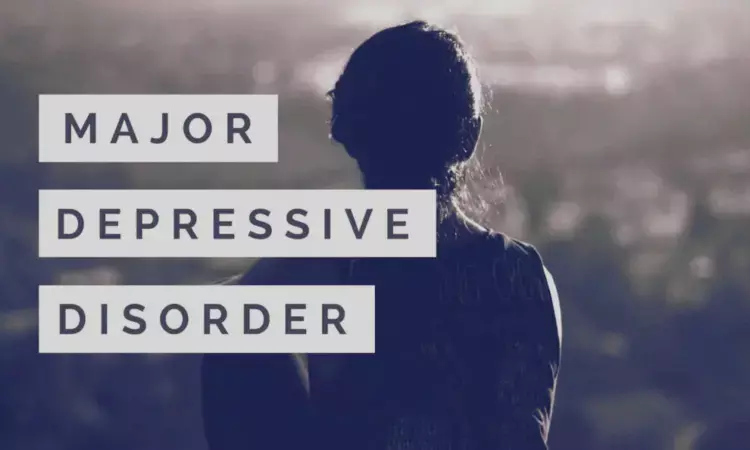- Home
- Medical news & Guidelines
- Anesthesiology
- Cardiology and CTVS
- Critical Care
- Dentistry
- Dermatology
- Diabetes and Endocrinology
- ENT
- Gastroenterology
- Medicine
- Nephrology
- Neurology
- Obstretics-Gynaecology
- Oncology
- Ophthalmology
- Orthopaedics
- Pediatrics-Neonatology
- Psychiatry
- Pulmonology
- Radiology
- Surgery
- Urology
- Laboratory Medicine
- Diet
- Nursing
- Paramedical
- Physiotherapy
- Health news
- Fact Check
- Bone Health Fact Check
- Brain Health Fact Check
- Cancer Related Fact Check
- Child Care Fact Check
- Dental and oral health fact check
- Diabetes and metabolic health fact check
- Diet and Nutrition Fact Check
- Eye and ENT Care Fact Check
- Fitness fact check
- Gut health fact check
- Heart health fact check
- Kidney health fact check
- Medical education fact check
- Men's health fact check
- Respiratory fact check
- Skin and hair care fact check
- Vaccine and Immunization fact check
- Women's health fact check
- AYUSH
- State News
- Andaman and Nicobar Islands
- Andhra Pradesh
- Arunachal Pradesh
- Assam
- Bihar
- Chandigarh
- Chattisgarh
- Dadra and Nagar Haveli
- Daman and Diu
- Delhi
- Goa
- Gujarat
- Haryana
- Himachal Pradesh
- Jammu & Kashmir
- Jharkhand
- Karnataka
- Kerala
- Ladakh
- Lakshadweep
- Madhya Pradesh
- Maharashtra
- Manipur
- Meghalaya
- Mizoram
- Nagaland
- Odisha
- Puducherry
- Punjab
- Rajasthan
- Sikkim
- Tamil Nadu
- Telangana
- Tripura
- Uttar Pradesh
- Uttrakhand
- West Bengal
- Medical Education
- Industry
Transcranial Direct Current Stimulation has Limited Efficacy for Treatment of Major Depressive Disorder

Transcranial direct current stimulation (tDCS) has emerged as a potential treatment for major depressive disorder (MDD). However, the existing evidence on its effectiveness has been mixed, and there is a lack of data from multicenter trials. To address this gap, the DepressionDC trial was conducted which was published in Lancet by Gerrit Burkhardt and team to evaluate the efficacy of tDCS compared to sham stimulation when used as an additional treatment alongside selective serotonin reuptake inhibitors (SSRIs) in adults with MDD.
The DepressionDC trial was a triple-blind, randomized, sham-controlled study conducted at eight hospitals in Germany. The trial enrolled patients aged 18-65 years with a diagnosis of MDD, who had shown no response to at least one antidepressant trial in their current depressive episode. Participants had been on a stable dose of an SSRI for at least 4 weeks before inclusion, and this treatment was continued during the trial. Patients were randomly assigned to receive either active tDCS or sham stimulation for a total of 6 weeks. The primary outcome measure was the change in the Hamilton Depression Rating Scale score at week 6.
● During the period from January 19, 2016, to June 15, 2020, a total of 3,601 individuals underwent eligibility assessment for participation in the study. ● Eventually, 160 patients were selected and randomly assigned to either the active tDCS group (n=83) or the sham tDCS group (n=77).
● However, six patients withdrew their consent, and four patients were discovered to have been incorrectly included in the study.
● Therefore, data from 150 patients were analyzed, of which 89 (59%) were female and 61 (41%) were male.
● The primary outcome measure, the mean improvement on the Hamilton Depression Rating Scale (MADRS) at week 6, showed no significant difference between the active tDCS group (n=77; –8.2, SD 7.2) and the sham tDCS group (n=73; –8.0, 9.3).
● The difference between the two groups was only 0.3 (95% CI –2.4 to 2.9), indicating no substantial variance in depressive symptom reduction.
● However, when assessing adverse events, it was found that a significantly higher number of participants in the active tDCS group (50 out of 83; 60%) experienced one or more mild adverse events compared to the sham tDCS group (33 out of 77; 43%).
● This difference in proportions was statistically significant (p=0.028), suggesting that active tDCS was associated with a higher incidence of mild adverse events.
The DepressionDC trial found that tDCS, when used as an adjunct treatment to SSRIs, did not demonstrate superior efficacy over sham stimulation in adults with MDD. The results suggest that tDCS may not provide additional benefits in reducing depressive symptoms when used alongside standard antidepressant medications. Furthermore, the trial highlighted a higher incidence of mild adverse events associated with active tDCS.
Reference:
Burkhardt, G., Kumpf, U., Crispin, A., Goerigk, S., Andre, E., Plewnia, C., Brendel, B., Fallgatter, A., Langguth, B., Abdelnaim, M., Hebel, T., Normann, C., Frase, L., Zwanzger, P., Diemer, J., Kammer, T., Schönfeldt-Lecuona, C., Kamp, D., Bajbouj, M., … Padberg, F. (2023). Transcranial direct current stimulation as an additional treatment to selective serotonin reuptake inhibitors in adults with major depressive disorder in Germany (DepressionDC): a triple-blind, randomised, sham-controlled, multicentre trial. Lancet. https://doi.org/10.1016/s0140-6736(23)00640-2
Dr Kamal Kant Kohli-MBBS, DTCD- a chest specialist with more than 30 years of practice and a flair for writing clinical articles, Dr Kamal Kant Kohli joined Medical Dialogues as a Chief Editor of Medical News. Besides writing articles, as an editor, he proofreads and verifies all the medical content published on Medical Dialogues including those coming from journals, studies,medical conferences,guidelines etc. Email: drkohli@medicaldialogues.in. Contact no. 011-43720751


